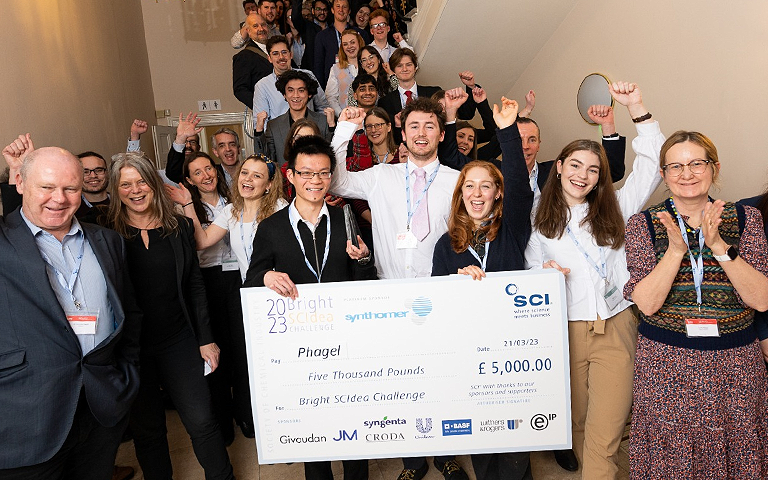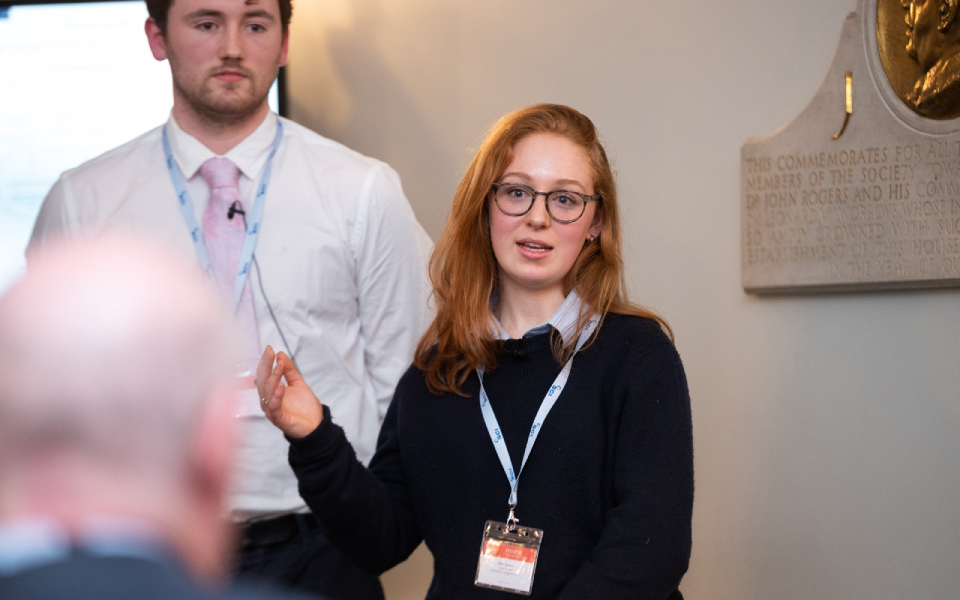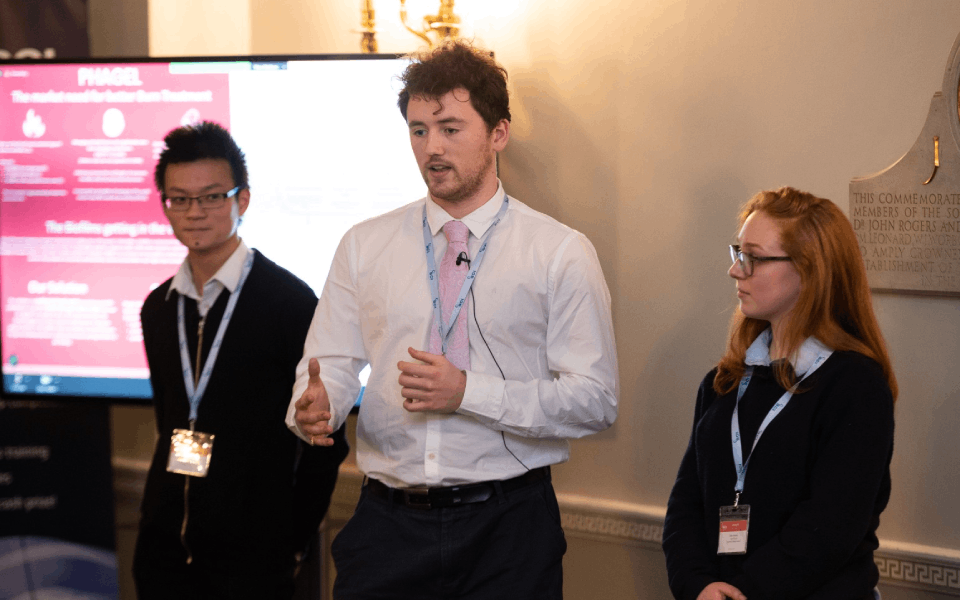UCL Natural Sciences student team wins SCI’s flagship entrepreneurial competition
31 March 2023
Team Phagel, consisting of second year UCL Natural Sciences students Tristan Edwards, Ellen Roshier and Daniel Wan, have won Society of Chemical Industry’s fifth edition of Bright SCIdea Challenge and walked away with the coveted big cheque for £5,000.

The Bright SCIdea Challenge provides support for students at university (UK and international) to develop an innovative science-based idea into a business plan and to compete for the money prize.
This year the competition involved a multidisciplinary line-up of teams presenting innovative solutions to issues as diverse as cardiac health, the environmental impacts of food, and the greening of solvents. Finalists included teams from Imperial College London, University of Warwick, Leeds University and Nova University (Portugal)/Sharif University of Technology (Iran).
UCL’s winning team, Phagel, is developing a hydrogel mix containing a combination of bacteriophages held in stasis that can be used in the treatment of burns. The team is focusing on treating those patients with burns that have the potential for septic complications.
The team said that bacteriophages have been experimentally proven to degrade polysaccharides in the biofilm matrix and destroy antibiotic-resistant bacteria, while the gel has a simultaneous cooling and wound-covering function to aid healing. The team emphasized that there is a great need for new and novel ways of treating burn wounds, especially for preventing infection.
Most models of care assume acute infections are from planktonic bacteria, and the need to address infection from the formation of biofilms is a huge gap in the modern treatment of burn victims. The team believes that the NHS would benefit from its product, as it could significantly reduce the costly length of hospital stays required for the treatment of burns.

“It was challenging to face something none of us have ever done before because you find there is not the guidance or comfort of previous experiences. This meant we were learning at the same time as developing a comprehensive strategy, so we had to clearly split our roles and be very flexible in our approach by continuously reassessing and adjusting our work.”
Tristan commented: “I would say that the biggest challenges during this process was researching and understanding all the legal hoops needed to be jumped through, before a medical product could ever be considered legitimately. And that it took a huge amount of time when we were initially starting and had zero knowledge on the legal procedures.”

The judges were impressed with the concept. Before the second runner up, first runner up and winner were announced, the audience was also invited to pick their favourite via a poll. For the first time, the audience and judges voted in exactly the same way.
Robin Harrison, one of the judges and VP Platform Technology & External Innovation at Synthomer, said: “The judges loved the concept as it has the potential to solve a real societal problem. It could treat burns effectively and help the move away from antibiotics. There would be a beneficial impact on the individual, on hospitals and the NHS – and on society. The team understood the steps needed to reach the solution and had a clear timeline to do this.”
Ellen commented: “Winning the competition has opened so many doors for us as individuals as well as for our project. It has given us the opportunity to network and get the relevant people on board to help us find a way forward and attack the next steps in making our business idea come into action.”
Director of UCL Natural Sciences Professor Geraint Thomas finalised: “A UCL Natural Sciences student team won the inaugural competition and since then Natural Sciences students have won it twice more – we are by far the most consistently competitive participants with a superb track record.”
SCI is a global network of innovators, formed in 1881 by prominent scientists, inventors and entrepreneurs. It supports entrants in the competition by delivering free, exclusive training, and teams with the strongest business plan are invited to deliver their pitch to an expert panel of experienced, successful senior businesspeople and innovators in the final.
Links
Images
- Top: The winners, SCI CEO, the judging panel and other participants. Credit: SCI/Andrew Lunn.
- Middle: Team Phagel presenting, focus on Ellen Roshier. Credit: SCI/Andrew Lunn.
- Bottom: Team Phagel presenting. Credit: SCI/Andrew Lunn.
Media Contact
Ingrida Bertasiute
i.bertasiute [at] ucl.ac.uk
 Close
Close

